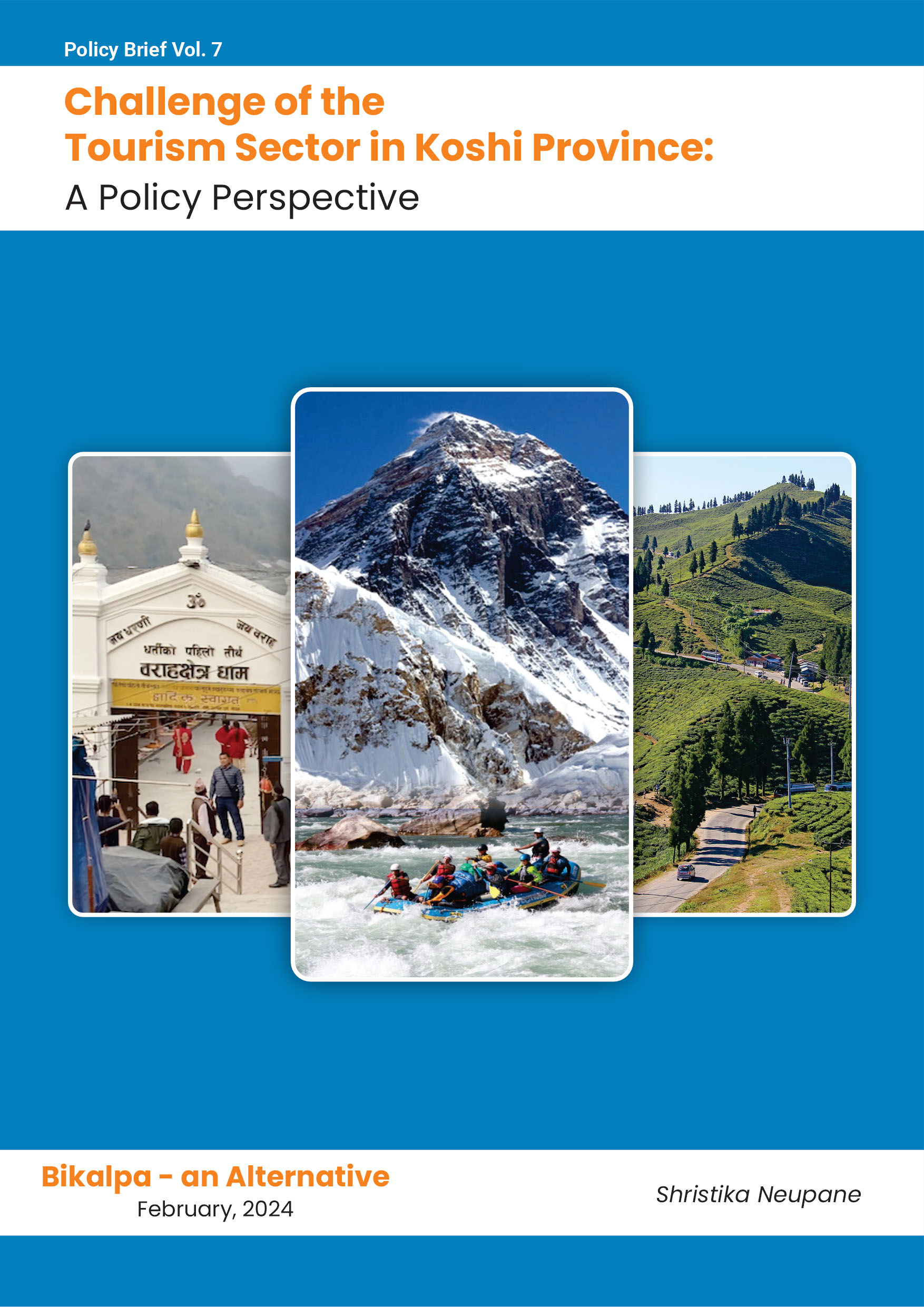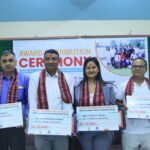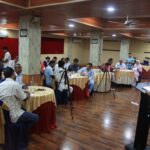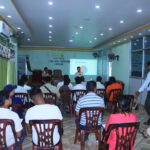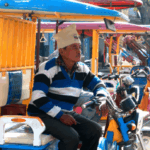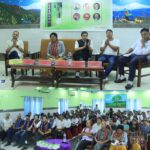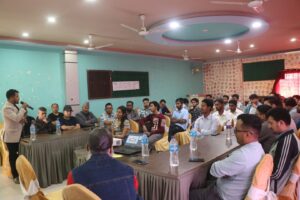An overview
Bikalpa an Alternative, with the support of the Center for Private Enterprise (CIPE), hosted a three day residential workshop, ” Bikalpa Fellowship Camp,” for Bikalpa fellow members from 5 to 7 August 2022 at Namje, Dhankuta. The workshop was a follow-up program to ” Entrepreneurship & The Beauty of Market ” for broader participation to discuss, engage and share knowledge on the values of Individual and Economic Freedom, Entrepreneurship, Public Policy, Accountability, Civic Leadership, and social contract theory.

The three-day program involves various interactive learning methods, including talks, dialogues, debates, and documentaries, designed to provide participants with fundamental concepts of political economy, sound public policy, and challenges of doing business and entrepreneurship. 23 participants from diverse groups attended the program. The application for the program course was open to all college students and young professionals through Bikalpa’s website. The participants were selected based on their answers to the website’s online registration form questions.
Over the 3 days, the program comprised the following topics.
- Recap of the one-day workshop and Introducing Bikalpa
- Doing business challenge in Nepal
- Colloquium: The economic case for freedom
- Rule of Law and Private property
- What motivates people?: The significance of incentive for guiding human actions in the market.
- Movie Discussion
- Social Contract Theory and Political System
- What is Public Policy and why does it matter?
- Debate on ‘Who should be Accountable?
Summary of the Session
Day 1
On the first day, all the participants, organizers, and resource persons met at the given destination and departure toward the training destination. After three hours of travel, participants reached the Hotel and had tea and snacks. After reaching out to the program destination, Mr. Suman Rai led the event’s first session with a welcome note and introduction to of the participants, organizers, and resource persons. After welcoming the participants, he shared the logistic information and ground rules.

Following this, Mr. Basanta Adhikari made participants do a short recap of their major takeaway and learnings from the one-day workshop. He also gave a presentation on ” Introduction of Bikalpa,” where he shared Bikalpa’s Mission, Vision, Goals, and thematic working area. He also talked about how organizations like Bikalpa work for social change through advocacy, Research, and campaign activities.
After that, Mr. Sarwagya Raj Pandey ended the session by dividing the participants into four groups and assigning each group with a presentation on the hassles of doing business in Nepal. The groups dealt with four sectors: – Hospitality Sector, Trading Sector, Manufacturing Sector, and Education Sector, and were asked to present their findings related to their topic the following next day.
Sarwagya Raj Pandey

The second day began with a short recap of the activities carried out on the previous day, which boosted to correlate of the session to the last day and proceeded further. Following this, each group presented their assignment in a seven-minute pitch time, and additional two minutes were provided to answer the queries of other participants. After completing the presentation, Mr. Sarwagya Raj Pandey gave feedback and opinion regarding the group work, where he discussed the challenges of doing business in Nepal based on the doing business index using various real-life examples.
Riwal Dahal

The second session of the day, followed by a tea session, was a Colloquium on ‘ The economic case for freedom ‘moderated by Mr. Riwaj Dahal. The 90-minute session, based on the part of the book, dived into the economic development and human progress since the industrial revolution began. The discussions also covered the economic disparity among the most and the least developed countries and the possible reasons being political and economic freedom. The case of lower discrimination in economically free countries was also bought up. The participants answered each other’s questions based on the reader’s understanding. The session concluded with the participant’s list of some takeaways from the discussion.
Rupesh Koirala

After that, Mr. Rupesh Koirala facilitated the Rule of Law and Property Rights session. In his session, he provided a perspective on why the rule of law and private property were important in our lives to all the participants. He highlighted the interconnection between Individual Liberty and Property. He said the private property system gives individuals the exclusive right to use resources. He shared that without Property Rights, individuals would not be incentivized to acquire property. Property rights are related to the liberty of a person. He mentioned that the Constitution of Nepal speaks about property rights which states that every person has the right to acquire, own, sell, dispose of, acquire business profit from, and otherwise deal with the property.
Basanta Adhikari

After that, a session on “What Motivates People” was moderated by Mr. Basanta Adhikari. He started the session by organizing a “How incentives drive human choices” group activity. In his presentation, he talked about people having different incentives, and individuals were moved by their pursuit of self-interest. He also further talked about self-interest and Greed. Greed is the excessive desire to gain something by causing harm to others, while self-interest is gaining something by producing good outcomes without harming others.
Punam Giri

The second day ended with the Movie-discussion. The Movie-discussion session was facilitated by Mr. Punam Giri, in which three short films, namely Working yourself in Nepal, Tootle ” Fight for Freedom,” Compulsion (Baadhyataa), and -3.21 ( Mal Practice ), were screened to help participants relate to policy issues. The first one portrays enabling a market environment that creates a million entrepreneurs and the beauty of the market. while the second movie put explores livelihood issues of the poor during the Covid-19 lockdown. The film highlights the story of a low-income family who must face many challenges during the Lockdown and how difficult circumstances forces them to go to take a risk for survival. The third movie highlighted the effects of Mal Development practices and the consequences faced by the public. The movie also talks about the bureaucratic hassles and bad governance system. After each movie screening, Mr.Giri took some feedback from the participants and clarified the issues related to those movies. The sessions were very interactive and engaging. All the participants participated actively during the sessions.
Day 3
Basanta Adhikari

The third day of the workshop started with a recap of the previous sessions. Afterward, Mr. Basanta Adhikari took the Social Contract Theory and Political Systems session. He remarked that a social contract is an agreement between people and the sovereign on how they will be ruled. He introduced the participants to the political philosophies of Thomas Hobbes and John Locke. He also shared that Hobbes was a proponent of Absolutism, a system that placed the state’s power in the hands of a single individual, and Locke advocated a more open approach to state-building.
He focused on four elements of the social contract: Human nature, State of Nature, Social Contract, and Sovereignty. He also highlighted the types of political economy. The types include Socialism (which states that production is collectively owned by the society and redistributes the result), Communism (the community owns the property, and each person contributes and receives according to their ability and needs), Capitalism (trade and industries controlled by private owners for profit rather than the state).
Sarwagya Raj Pandey

The other session on 10 principles of sound public policy was facilitated by Mr. Sarwagya Raj Pandey, who talked about the ten key principles of sound public policy. During his session, he talked about how policy and individual are interrelated. He also talked about the seen and unseen factors of public policy. He provided examples on the issue of corruption, bad public service delivery, and elections to talk about where proper policy plans would take place.
Suman Rai

Following that, the third session on the debate, “Who should be responsible for delivering the public goods?” was moderated by Mr. Suman Rai. In the session, participants were divided into three groups. The area selected for the debate were education, health, fuel/gas, and electricity. The three teams, Government, Community, and Private, vowed how their respective sectors could handle public delivery more efficiently than the opponent sectors. Mr. Sarwagya Raj Pandey also played an Advocate role in the debate session by summarizing their points and giving respective feedback to all the team.
Deependra Chaulagain

The final session of the event was on What is Public Policy and why does it matter? which was virtually facilitated by Mr. Chaulagain began the discussion by overviewing the Samridhhi Foundation’s journey in advocating economic freedom and the way forward for the Nepali economy, highlighting the importance of think tanks like Samriddhi and Bikalpa for their interventions in policy issues. He opined that while the people’s movement of 2062/2063 did help in achieving greater political freedom, the issues of economic freedom and public policy were not so much debated or captured the imagination of very few people. He also talks about cost-benefit analysis, Policy formulation, Policy Adoption, Policy Assessment, and Policy implantation. Continuing into the interaction, Mr. Chaulagain said that every public policy affects citizens’ lives. Also, Public policy is supposed to facilitate the general public’s lives. Unfortunately, the policies in Nepal are framed to control the citizens’ lives. “The government’s job is to make our lives easier through public service delivery for which each citizen has paid tax to the government,” he said.
In concluding remarks, he shared that as members of civil society, we need to collaborate and share our knowledge with the local government. And only then, through such a participatory approach, holistic development is possible where we all play the crucial role of a responsible and empowered citizens.
Summarizing the session at the end, The Program ended by taking the participants’ feedback and distributing certificates. Finally, The participants and the organizing team returned to Biratnagar after having tea and snacks on the 8th of August.


